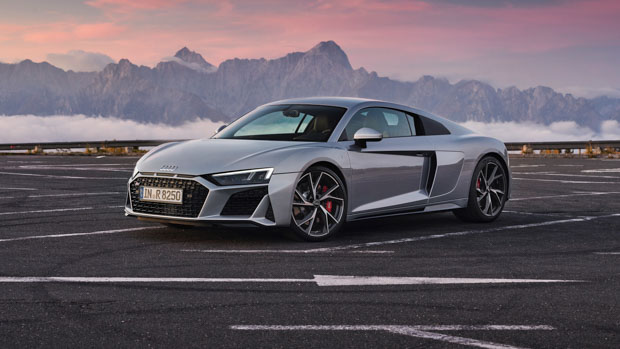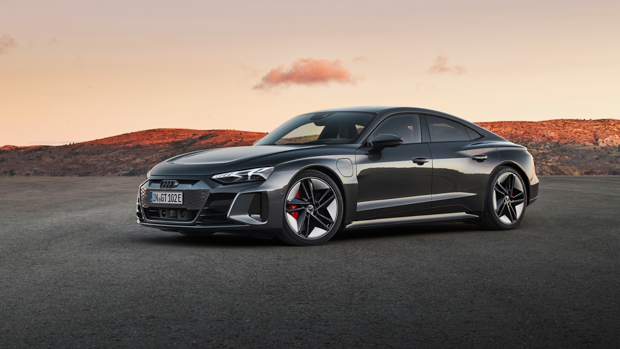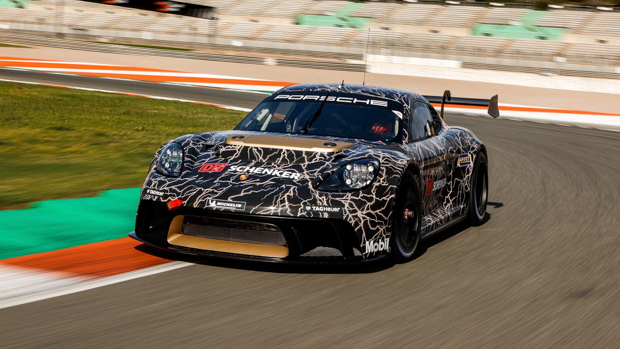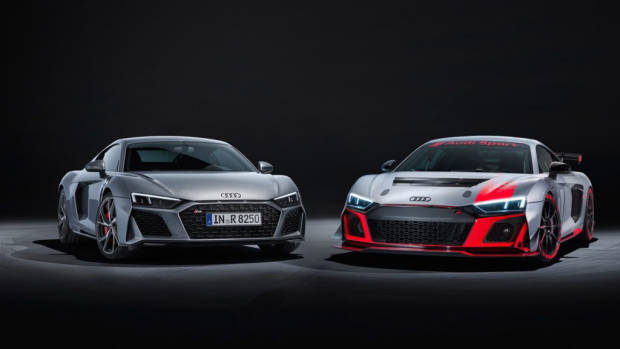-
Car Reviews
- All reviews
- Midsize SUVs
- Small cars
- Utes
- Small SUVs
- Large SUVs
- Large cars
- Sports SUVs
- Sports cars
- Vans
Latest reviews
- Car News
-
Car Comparisons
Latest comparisons
- Chasing Deals
R8 nameplate won’t disappear in the onslaught of electrification, with renewed supercar likely to return as EV halo, potentially with Porsche underpinnings
As the Audi R8 departs the Australian market, it ends its long reign as the flagship of the Ingolstadt manufacturer’s local range – it’s set to be replaced by the all-electric, five-door RS E-tron GT sports sedan.
But the R8 will not disappear forever, according to reports. An all-electric Audi R8 successor is likely to follow in the middle of this decade after the V10’s final hurrah in Europe, that being a ‘GT’ variant that is track-focused – not unlike a Porsche 911 GT3 RS.
The current R8 V10 is set to live on in Europe and America, being hand-built at the brand’s flagship Bolinger Hofe plant until the end of 2023 – alongside the new E-tron GT that has stolen its crown at the head of the Audi line.
In an interview with British publication Autocar, Audi Sport managing director Sebastian Grams said of the skilled workers at the current R8 factory “we will keep craftsmanship as it’s what makes the car unique from the rest of the portfolio.
“If we bring an R8 successor, we will try to continue to do that. It is important for the customer. There’s love inside an R8.”
Grams also indicated that any successor would be an electric halo. Though of course, this successor won’t be the first electrified R8. Audi built 100 units of a twin-motor, 340kW/940Nm R8 E-tron in 2015 just for Europe.
There are no concrete details about Audi’s future supercar. However, the brand falls under the same Volkswagen Group umbrella as Porsche so there are some indications. This ‘partnership’ has already spawned the J1 platform-based E-tron GT and Taycan cousins.
It would be unlikely for an electric R8 to sit on the same 800-volt J1 platform as Porsche has already confirmed a new ‘SSP’ platform is in development to take J1’s place.
Porsche’s – and the broader VW group’s – ‘SSP’ platform will be modular and likely run at 800-volts, just like J1. The modularity will allow sedans, grand tourers and SUVs to use the same underpinnings as the brand’s MLB platform does now.
However, given the R8’s supercar history, something more exotic might be put in place.
Porsche has already confirmed its next generation of 718 Cayman and Boxster models will be electric. Given these vehicles will be exclusively sports cars with a focus on lighter weight with a bespoke platform. This would be another option for Audi’s next-gen R8.
A 718 Boxster/Cayman may traditionally be a little less serious than R8, but Porsche has said this platform will have batteries stacked behind the occupants. This not only mimics the weight distribution of a mid-engined combustion car, but also the low-slung driving position.
British brand Lotus has revealed it is developing a similar set of platforms. One with a traditional ‘skateboard’ layout for SUVs and four-dour GTs and another for sports cars with a similar battery layout.
An electric R8 would need more grunt than the peak 456kW/580Nm outputs of the R8 V10 Performance’s mighty 5.2-litre petrol V10 was capable of. It seems there’s little issue extracting scarcely-believable power numbers from electric motors, though.
The Porsche Cayman GT4 ePerformance test mule already develops 800kW in full attack mode from its dual motors. To match the Tesla Roadster, a new electric R8 would need to be approaching that car’s expected 1000kW of power and 1200Nm of torque.
Don’t expect an electric 718 clone from the next R8, with Grams telling Autocar: “we want to make the car different, like we do in the combustion-engined world. Our customers want to differentiate from other models – in design, bodywork, chassis and performance. With the RS E-tron GT, we are the [electric] forerunner in a field of competitors.”
Naturally, an electric R8 would be an AWD proposition with at least two motors on board. As technology advances there’s also the possibility of individual motors for greater torque vectoring dexterity.
A range of between 400-500km WLTP could be adequate for a super car such as an electric R8. To achieve that, a battery at least the size of Taycan/E-tron’s 83.7kWh pack would be necessary. Think 90-100kWh.
Latest news
About Chasing cars
Chasing Cars reviews are 100% independent.
Because we are powered by Budget Direct Insurance, we don’t receive advertising or sales revenue from car manufacturers.
We’re truly independent – giving you Australia’s best car reviews.



